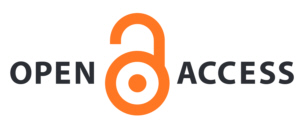Tentang Jurnal Ini
Global Legal Review (E-ISSN: 2776-1347 P-ISSN: 2776-0308 ) is a forum for published research and scientific discussion of law. It also serves as an input to the development of both national and international law.
The Journal also accommodate publications expected from doctoral candidate completing their dissertation both from domestic and foreign universities and/or research institutions.
The scope of the journal includes, but not limited to, the following topics:
- Law
- Banking and Finance
- Competition Law
- Constitutional and Administrative Law
- Corporate Law & Governance
- Criminal Law
- Environmental Law
- Family Law
- Human Rights
- Information Technology Law
- International Arbitration & Dispute Resolution
- International Business Law
- International Investment Law
- International Law
- Intellectual Property Rights
- International Regulation of Trade
- Law & Economic Development
- Law & Religion
- Law & Society
- Legal Education
- Legal Pluralism
- Maritime Law
- Migration Law
- Private Law
Peer Review Process
Manuscripts submitted will go through the evaluation process with a system of blind peer review by reviewers selected by the Editorial Board. Reviewers are appointed under consideration of expertise and suitability to the subject.
Results of the evaluation will be communicated within 2-3 months.
On the basis of reviewers’ comments and recommendations, the Editorial Board will decide whether the manuscript is accepted without revision, accepted with revisions required, or rejected.
The revised manuscript should be returned to the Editorial Board within a predetermined time.
Publication Frequency
This journal published twice a year in April and October
Open Access Policy
This journal provides immediate open access to its content on the principle that making research available to the public supports a greater global exchange of knowledge.
This access is freely available without charge to the user or his/her institution. Users are allowed to read, download, copy, distribute, print, search, or link to the full texts of the articles in this journal without asking prior permission from the publisher or the author. This is in accordance with the BOAI definition of open access.

Author Fees and Publication Charges Policy
This journal does not charge any author processing fees or article submission fees. There are no costs that the author is required to pay.
Author Self-Archiving Policy
This journal permits and encourages authors to post items submitted to the journal on personal websites and institutional or funder repositories after publication. The final published PDF version should be used and bibliographic details that credit the publication in this journal should be included.
Competing Interest Policy
A competing interest is anything that interferes with, or could reasonably be perceived as interfering with, the full and objective presentation, peer review, editorial decision-making, or publication of research or non-research articles" (with acknowledgement and thanks to PLoS).
Competing interests can be financial or non-financial, professional, or personal. Competing interests can arise in relationship to an organization or another person.
Declaring all potential competing interests is a requirement and is integral to the transparent reporting of research.
1) Authors must declare all relevant competing interests for consideration during the review process.
2) Editors (professional or academic, paid or unpaid) and reviewers must declare their own competing interests and if necessary recuse themselves from involvement in the assessment of a paper.
3) Anyone who comments on or rates published papers in Global Legal Review must declare their competing interests at the time of posting their comments and/or rating.
Complaints Policy
Complaints should be sent via e-mail to the Editor-in-Chief at glr@uph.edu. In your complaint, please clearly describe the nature, circumstances, and subject of the complaint. All complaints will be addressed promptly following the best practice in the ethics of scholarly journal publishing.
Copyright Policy
Authors retain copyright and grant the journal right of first publication with the work simultaneously licensed under a Creative Commons Attribution-ShareAlike International License (CC-BY-SA 4.0) that allows others to share the work with an acknowledgement of the work's authorship and initial publication in this journal.
Authors are able to enter into separate, additional contractual arrangements for the non-exclusive distribution of the journal's published version of the work (e.g., post it to an institutional repository or publish it in a book), with an acknowledgement of its initial publication in this journal.
Journal History
The first edition of Global Legal Review was published in April 2021.
